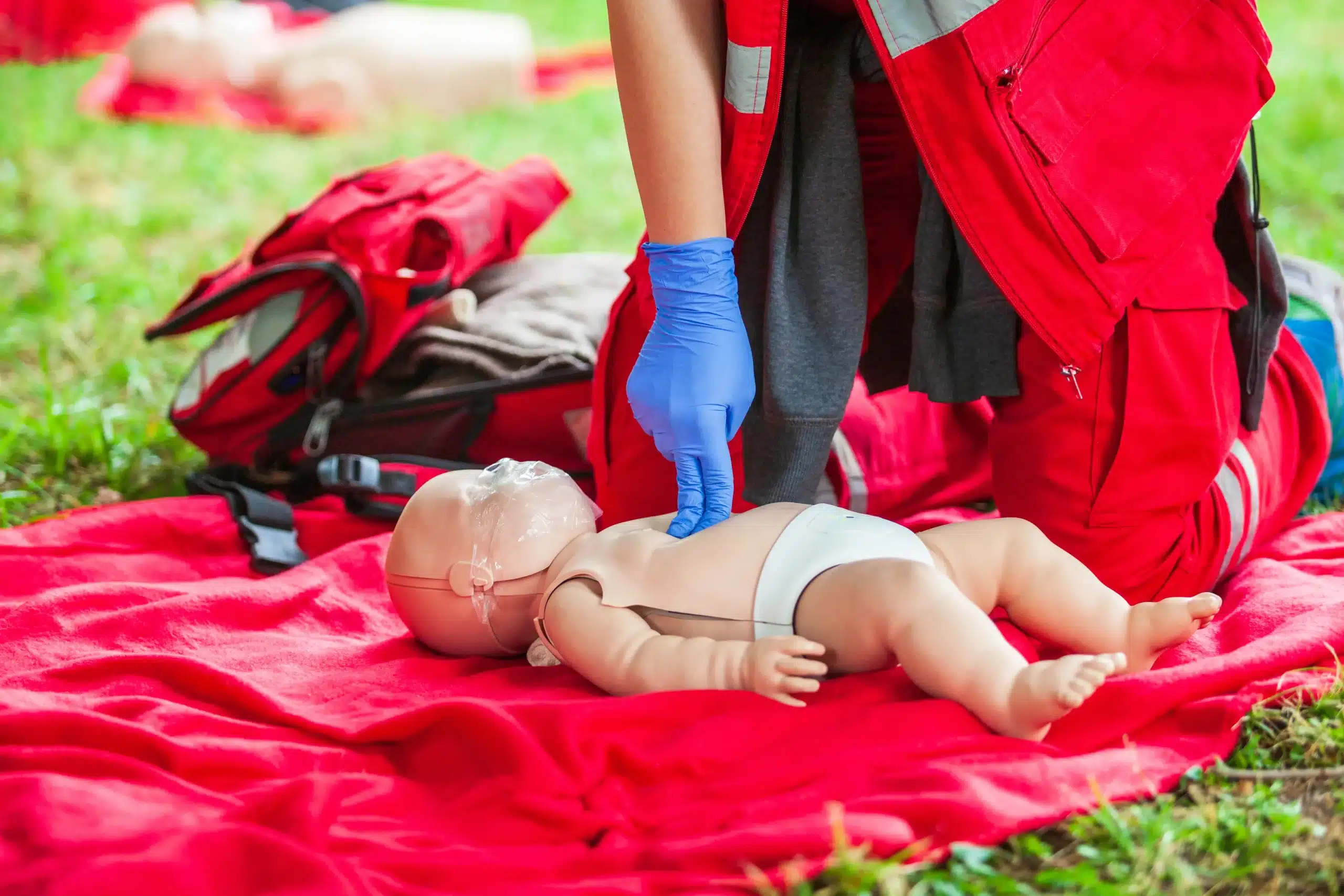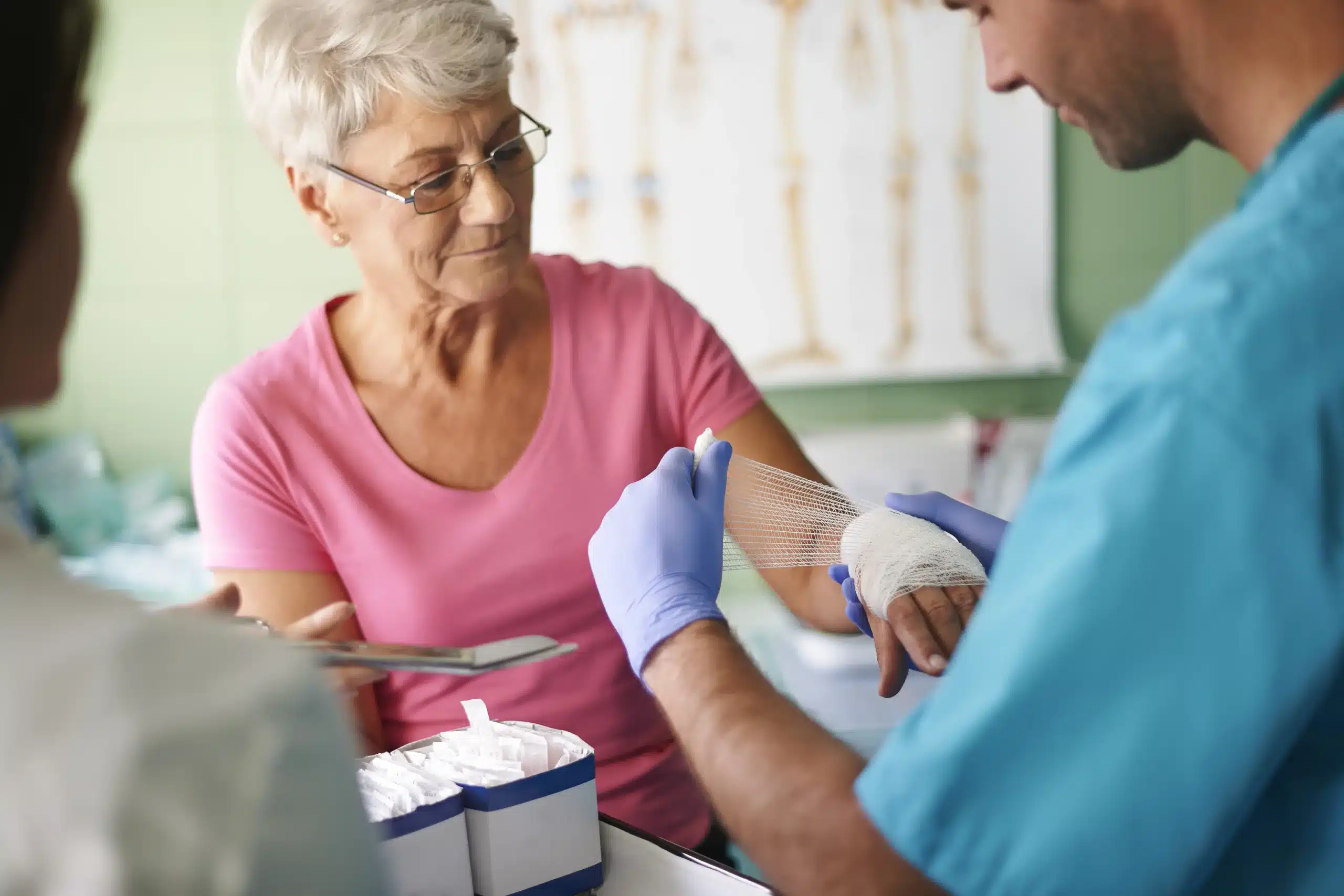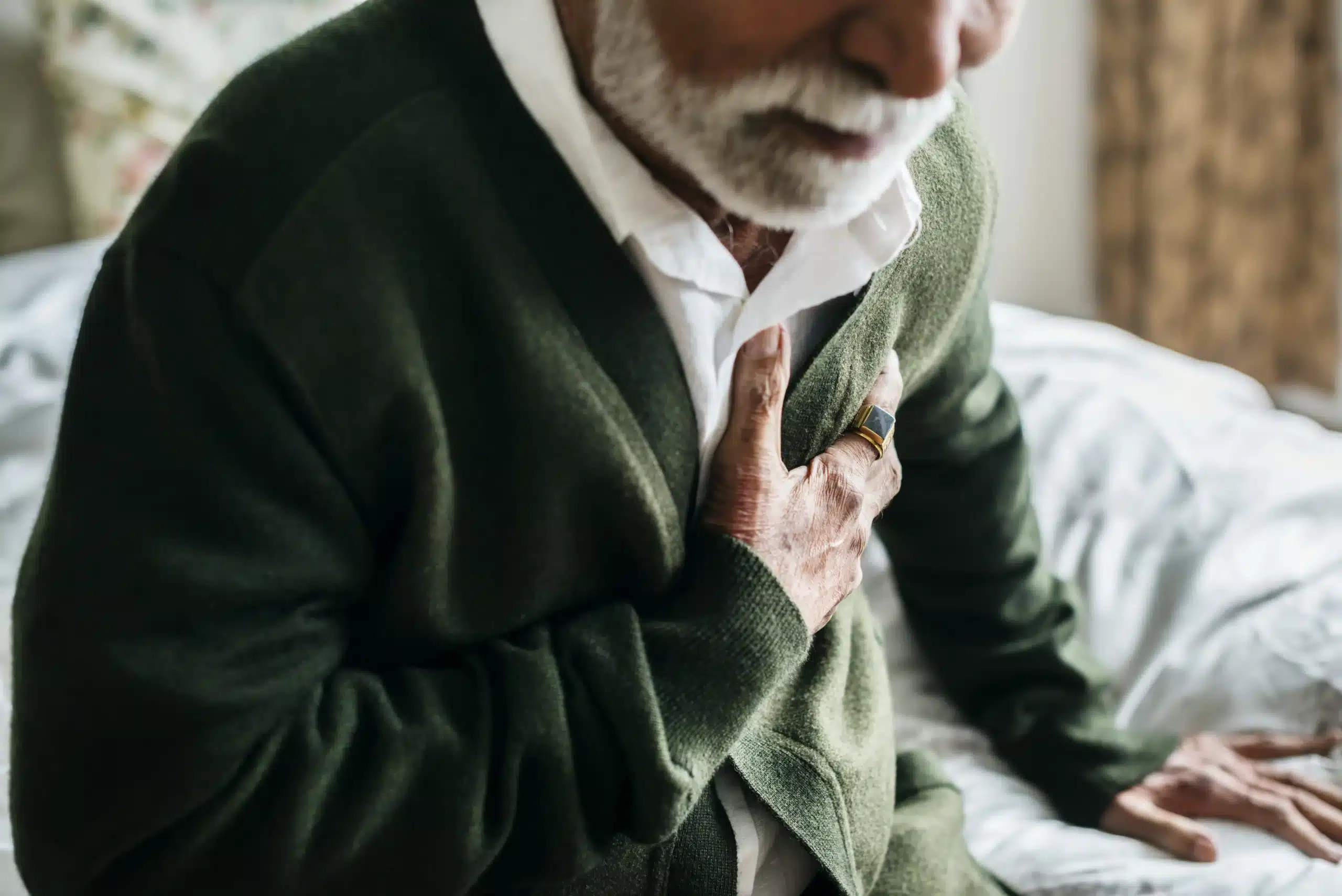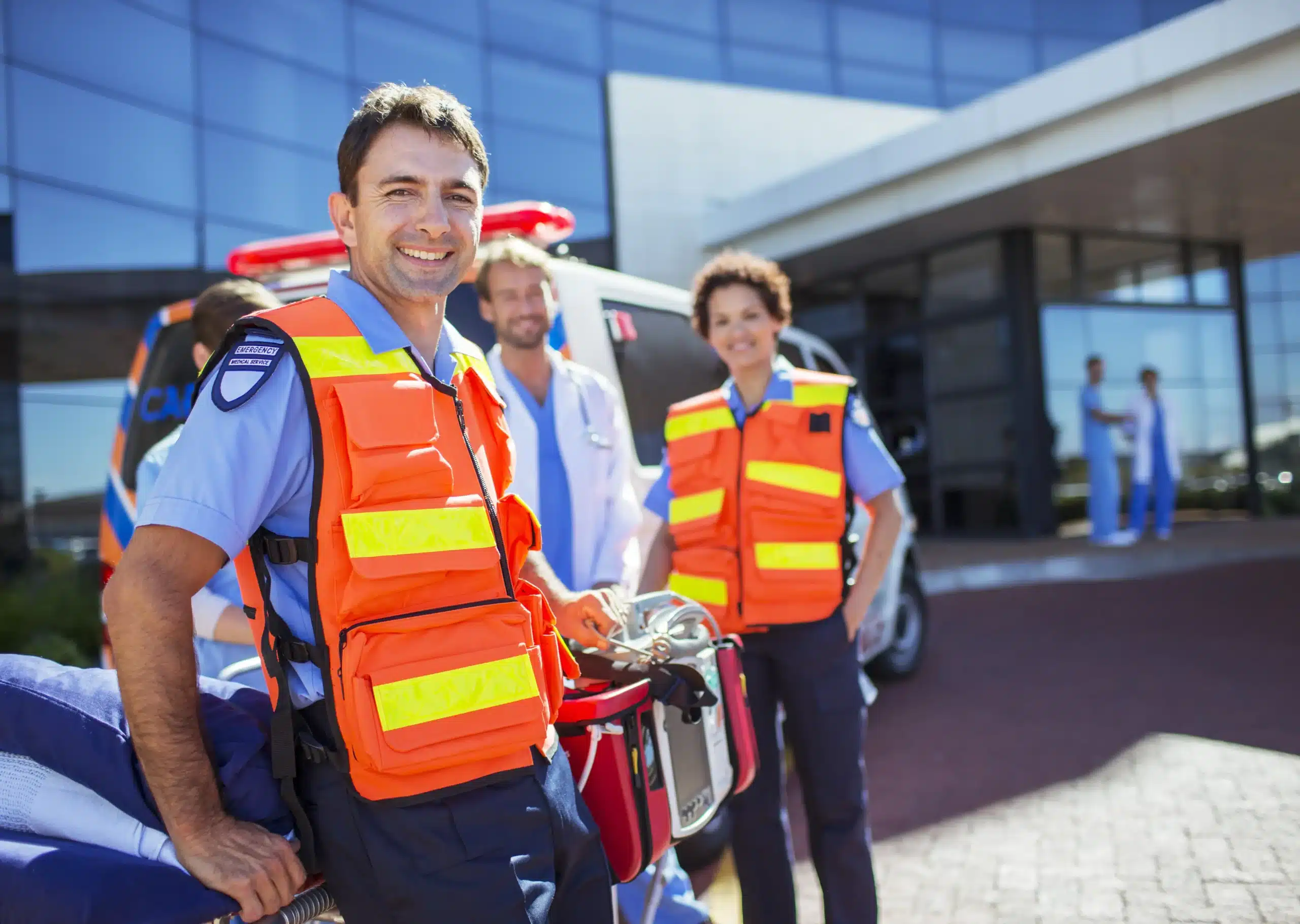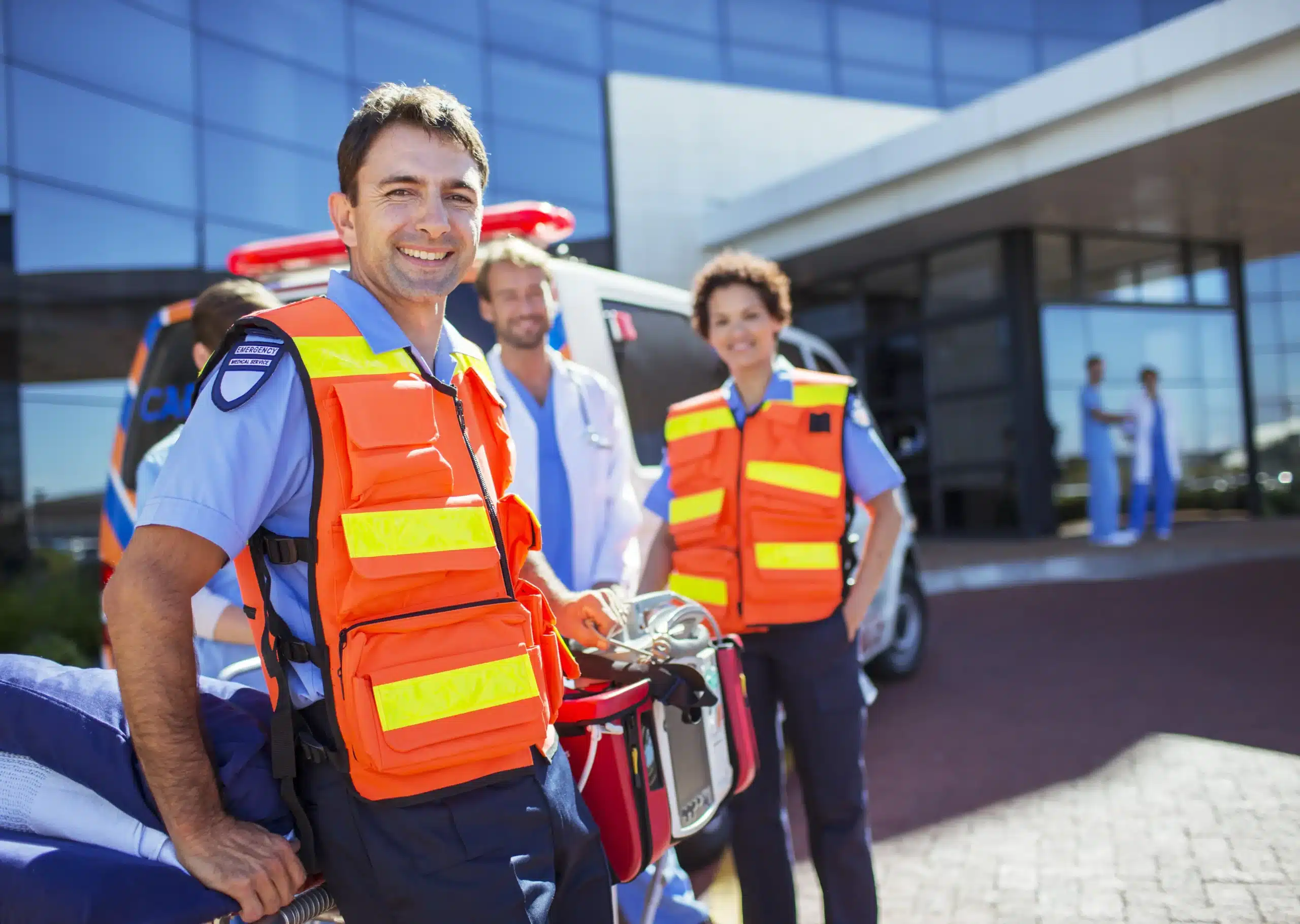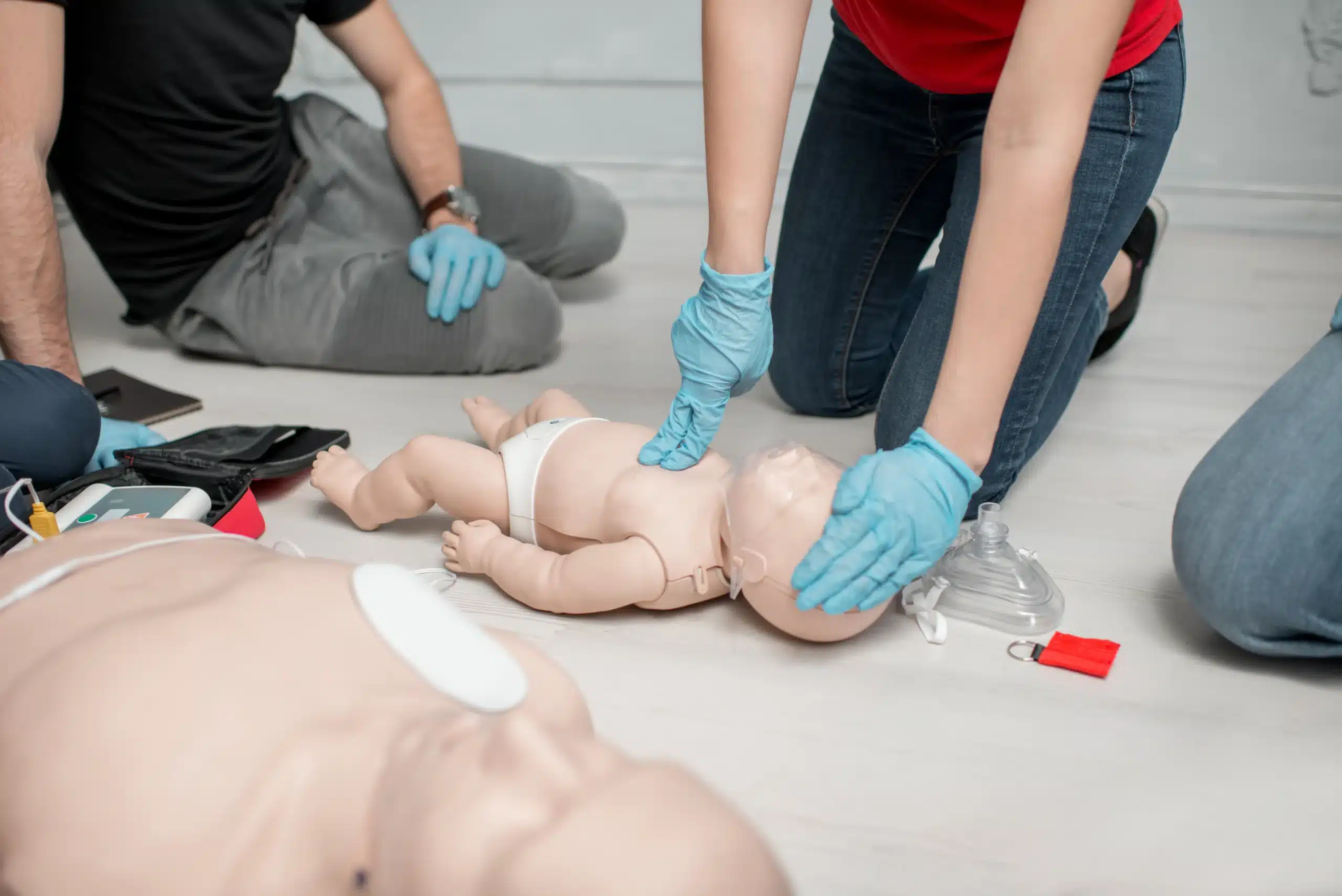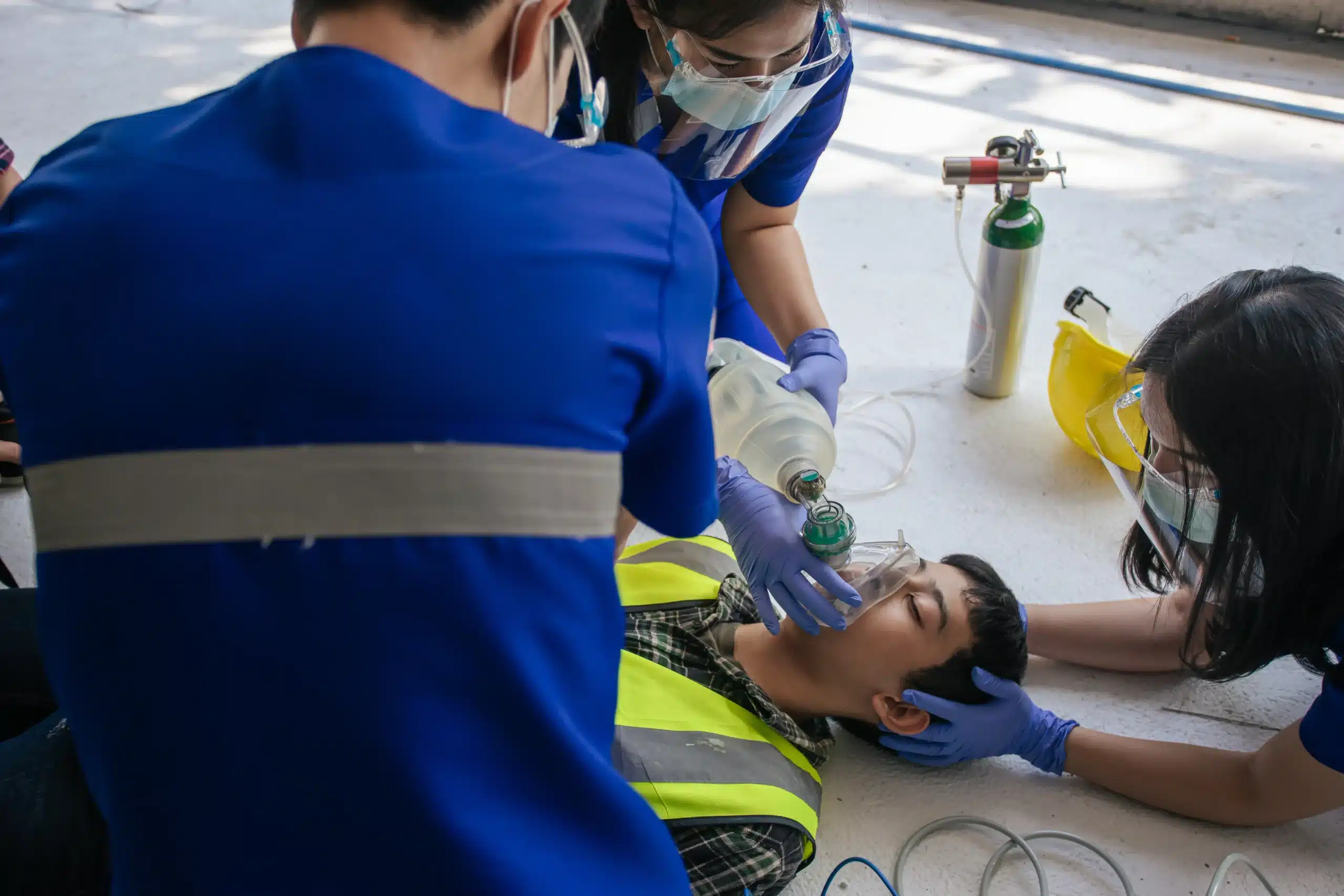Life is unpredictable. Emergencies happen. But with BLS training, you can be prepared for whatever comes your way. BLS certification gives you the skills and confidence to respond effectively in critical situations, from cardiac arrest to choking emergencies. Whether you work in healthcare or simply want to be ready to help, BLS training is invaluable. This guide will help you find “BLS training near me” and answer all your questions about BLS certification, from course costs to different training formats. Let’s explore how BLS can empower you to make a difference.
Key Takeaways
- BLS training provides essential life-saving skills: From CPR and AED use to relieving choking, BLS equips you to handle medical emergencies, benefiting both healthcare providers and everyday people.
- Choosing the right BLS course matters: Consider factors like instructor qualifications, hands-on practice opportunities, and the training format (online, in-person, or blended) to find the best fit for your needs.
- Staying current with BLS skills is crucial: Regular practice and recertification ensure you’re always prepared and confident in your ability to respond effectively in a crisis.
What is BLS Training and Why Do You Need It?
What is Basic Life Support (BLS)?
Basic Life Support (BLS) certification equips healthcare providers and everyday heroes with the skills to respond to cardiac arrest and other life-threatening emergencies. It’s a critical credential for anyone working in healthcare, but it’s also valuable for teachers, coaches, parents, and anyone who wants to be prepared to help in a crisis. BLS focuses on providing immediate care, including CPR, using an AED, and relieving choking. It differs from standard first aid, which addresses less critical injuries like cuts or burns. While BLS certification is vital, especially for healthcare professionals, there are common misconceptions about what it entails. For reliable information on BLS certification, check out resources like those available from American Health Training.
What Will You Learn in a BLS Course?
BLS training covers essential, life-saving skills. You’ll learn high-quality CPR for adults, children, and infants, how to use an automated external defibrillator (AED), and the proper techniques for relieving choking. The course also emphasizes teamwork and clear communication, highlighting the importance of quickly recognizing the signs of a cardiac arrest or other medical emergency. BLS courses often use case studies and realistic simulations to give students hands-on practice in applying these skills under pressure. For a more in-depth look at how BLS training benefits healthcare providers, visit Online Safety Trainer.
How BLS Helps Healthcare Professionals and Everyday Heroes
BLS training empowers both healthcare professionals and everyday people to respond effectively in emergencies. For healthcare providers, BLS provides the foundational skills to assess a patient’s condition, deliver immediate interventions like CPR and AED use, and offer crucial support until paramedics arrive. But the value of BLS extends beyond the hospital or clinical setting. Anyone can benefit from knowing these skills. From parents and teachers to coaches and caregivers, BLS training provides the confidence and competence to act quickly and potentially save a life. All Hearts CPR discusses the importance of BLS training for healthcare professionals. Plus, research shows that regular BLS training and refreshers can improve people’s attitudes toward performing CPR and using AEDs, making them more likely to take action in a real emergency, as discussed in BMC Health Services Research.
Find BLS Training Near You
Finding the right BLS training program is easier than you think. Whether you’re a healthcare professional or want to be prepared for emergencies, several excellent options are available. Here’s what you need to know about finding BLS training near you in Antioch, Brentwood, and Pittsburg:
Top Local BLS Training Providers
Safety Training Seminars
We offer various BLS courses designed for both healthcare providers and the general public. Our training focuses on hands-on practice and real-world scenarios, giving you the confidence to respond effectively in emergencies. We’re proud to serve Antioch, Brentwood, and Pittsburg, and offer a low-price guarantee.
American Heart Association
The American Heart Association provides comprehensive BLS training through its network of local chapters. These courses equip healthcare providers with essential skills like high-quality CPR, AED use, and managing choking emergencies. Check their website to find a training center near you.
American Red Cross
The American Red Cross is another trusted source for BLS certification and renewal. They offer classes covering CPR, AED use, and airway management for adults, children, and infants. You can easily locate classes in your area through their website.
Local Hospitals and Community Colleges
Many local hospitals and community colleges offer BLS training programs. These institutions often provide flexible scheduling options to fit your busy schedule. Check with hospitals and community colleges in your area for their course offerings.
Choose the Right BLS Provider
When selecting a BLS provider, consider factors like course content, instructor qualifications, and the training format. Look for providers who offer hands-on practice, use up-to-date materials, and have experienced instructors. Make sure the provider aligns with your specific needs and learning style. Our low price guarantee ensures you receive high-quality training at the best possible price. We also offer group discounts for businesses and organizations.
Online vs. In-Person BLS Training: Which is Right for You?
Online BLS certification offers flexibility, allowing you to learn at your own pace. Online courses can be a great option for busy professionals. However, in-person training provides hands-on practice and direct interaction with instructors, which can be invaluable for building confidence and mastering essential skills. Consider your learning preferences and schedule when deciding between online and in-person training. In-person training offers the benefit of immediate feedback and the opportunity to practice skills in a controlled environment.
BLS Training Costs and Options
How Much Does BLS Training Cost?
Basic Life Support (BLS) training costs vary based on several factors, including your location, the training provider, and the course format. While some organizations, like the University at Buffalo, offer BLS certification for $55, prices can fluctuate. It’s helpful to check with a few different providers, like your local Red Cross, to compare pricing in your area. Adding First Aid or Pediatric First Aid to your BLS training may also affect the total cost. Remember to factor in any additional expenses, such as study materials or travel, when setting your training budget. Safety Training Seminars offers a low price guarantee for courses in Contra Costa County, ensuring you receive high-quality training at a competitive price.
Discounts and Group Rates for BLS Training
If you’re training a team or group, explore discounts or group rates. Many providers offer special pricing for larger groups, making training more affordable. Safety Training Seminars offers discounts for group BLS classes, so ask about these options when comparing providers. Some organizations also tailor training to specific industries, incorporating local emergency response protocols, which can be valuable for businesses.
BLS Training Formats
BLS training comes in several formats, catering to different learning styles and schedules. Consider which format best suits your needs before registering.
In-Person BLS Classes
In-person BLS classes provide hands-on learning and direct interaction with instructors. This format allows you to practice skills and receive immediate feedback. If you thrive in a traditional classroom setting and value face-to-face instruction, in-person training might be a good fit. Safety Training Seminars offers daily BLS classes in Antioch, Brentwood, and Pittsburg.
Online BLS Courses
Online BLS courses offer flexibility and convenience. You can study at your own pace, anytime, anywhere with internet access. This format is ideal for busy individuals who prefer self-directed learning. However, online courses typically require an in-person skills assessment for certification.
Blended Learning BLS Options
Blended learning combines online coursework with in-person skills sessions. You’ll complete online modules at your convenience and then attend an in-person session to practice and demonstrate your proficiency. This format offers a balance of flexibility and hands-on training. The Red Cross offers this blended learning approach for BLS training.
What to Expect During BLS Training
So, you’ve signed up for a BLS class—congratulations! Knowing what to expect can help you feel prepared and confident on training day. Here’s a rundown of what your BLS training will entail:
BLS Course Curriculum and Duration
BLS training for healthcare providers covers essential lifesaving skills. You’ll learn adult, child, and infant CPR, how to use an AED, and techniques for relieving airway obstructions. A standard BLS certification course typically lasts about 4.5 hours. Some providers, like Safety Training Seminars, also offer options for customized group training that might incorporate specific local protocols, potentially extending the course duration.
Hands-On Practice and Skill Assessment
BLS training isn’t just lectures and videos. You’ll spend a significant portion of your class practicing hands-on skills. You’ll work with training manikins to practice CPR compressions, giving rescue breaths, and using an AED. This practical experience helps you develop the muscle memory and confidence you’ll need in a real emergency. While convenient, online BLS courses often lack the required hands-on skill assessment for most workplaces. For many healthcare professionals, in-person training is essential.
BLS Certification: Process and Validity
After successfully completing your BLS course and skills assessment, you’ll receive your BLS certification card, valid for two years. As your certification nears expiration, enroll in a BLS renewal course to refresh your knowledge and stay current with the latest guidelines. A current BLS certification is essential for many healthcare roles and shows your commitment to providing excellent patient care.
Get the Most Out of Your BLS Certification
So, you’re ready to become BLS certified—that’s fantastic! Whether you’re a healthcare professional or simply want to be prepared for emergencies, BLS certification is a valuable asset. Here’s how to make the most of your training, from preparation to recertification.
Prepare for Your BLS Course
Before your BLS course, take some time to familiarize yourself with basic life support concepts. Brushing up on CPR techniques and the chain of survival can give you a head start. Check out resources like Medicus Training’s guide on essential BLS skills to get a feel for what to expect. Knowing the basics beforehand will help you focus on mastering the techniques during the course. This preparation will make your learning experience smoother and more effective.
Maintain Your BLS Skills After Certification
Your BLS certification is a starting point, not the finish line. Regularly practicing your skills is key to staying sharp. Think of it like any other skill—the more you use it, the better you become. Medicus Training also emphasizes continuous BLS skills development to maintain proficiency. Consider setting up practice sessions with friends or colleagues or using online resources to refresh your knowledge. Consistent practice will boost your confidence and ensure you’re ready to respond effectively in a real emergency.
Why Regular BLS Recertification Matters
BLS guidelines and best practices evolve, so staying current is crucial. Regular BLS recertification ensures you’re up-to-date on the latest techniques and advancements in emergency care. All Hearts CPR highlights the importance of this for healthcare professionals, but it’s equally important for anyone with BLS certification. Recertification not only reinforces your skills but also demonstrates your commitment to providing high-quality care. It keeps your knowledge fresh and your skills sharp, allowing you to respond confidently and effectively in critical situations.
Common BLS Training Misconceptions
There are a few misconceptions surrounding BLS training that might be holding you back. One common myth is that it’s only for medical professionals. The truth is, BLS training is beneficial for everyone, from teachers and coaches to parents and grandparents. Another misconception is about the time commitment. Many providers offer flexible course options, including online and blended learning formats, to fit your schedule. Don’t let these myths prevent you from gaining this life-saving skill. BLS certification is an investment in yourself and your community, empowering you to make a difference when it matters most.
Related Articles
- BLS Certification Brentwood: Costs, Classes & Providers – Antioch CPR Classes
- BLS for Healthcare Providers in Antioch: Your Guide – Antioch CPR Classes
- BLS Courses in Antioch: Your Complete Guide – Antioch CPR Classes
- BLS Training in Brentwood: Your Complete Guide – Antioch CPR Classes
- BLS for Healthcare Providers in Brentwood: A Complete Guide – Antioch CPR Classes
Frequently Asked Questions
What’s the difference between BLS and CPR?
CPR (Cardiopulmonary Resuscitation) is a specific technique used within BLS (Basic Life Support). BLS encompasses a broader range of skills, including CPR, using an AED, and relieving choking. Think of CPR as one tool in the BLS toolkit.
How often do I need to renew my BLS certification?
BLS certification is typically valid for two years. To maintain your credentials and stay up-to-date with the latest guidelines, you’ll need to recertify before your current certification expires.
Is online BLS training sufficient for healthcare providers?
While online BLS courses offer flexibility, most healthcare settings require hands-on skill assessment and practice, typically done in person. Check with your employer or licensing board to confirm their specific requirements. Many online courses offer a blended learning approach, combining online modules with in-person skills sessions.
What if I’m nervous about performing BLS in a real emergency?
It’s completely normal to feel some apprehension about using your BLS skills in a real-life situation. That’s why regular practice and recertification are so important. Building muscle memory and staying familiar with the latest procedures can boost your confidence and help you react effectively under pressure.
How can I find BLS training near me?
Several resources can help you locate BLS training providers in your area. The American Heart Association and the American Red Cross both have websites with class locators. You can also check with local hospitals, community colleges, and specialized training centers like Safety Training Seminars.


